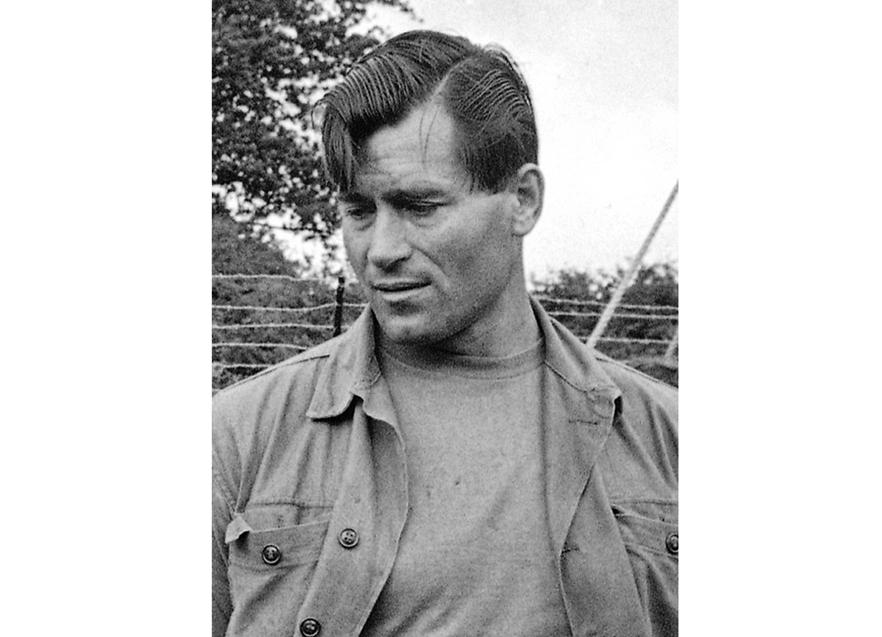
NEW YORK — Clint Walker, a former merchant seaman and real-life deputy sheriff who roamed the West as a towering, solitary figure on “Cheyenne,’’ the first hourlong western on television, died Monday at a hospital in Grass Valley, Calif. He was 90.
The cause was congestive heart failure, said his daughter, Valerie. Mr. Walker lived in Grass Valley, about 60 miles northeast of Sacramento.
He also appeared in the “The Dirty Dozen’’ and other movies, but he was best known for “Cheyenne,’’ seen on ABC from 1955 to 1963.
The show opened with a theme song that stuck to the brain with the strength of epoxy:
“Cheyenne, Cheyenne where will you be camping tonight?/ Lonely man, Cheyenne, will your heart stay free and light?’’
Mr. Walker — born Norman, but renamed Clint by Jack Warner of Warner Bros. — played Cheyenne Bodie, a big-hearted man who performed good deeds and fought bad men in his wanderings. “Cheyenne’’ was among the first television series produced by Warner Bros., and it had the lavish look of a big-screen movie.
As shooting of the show’s first season began, Mr. Walker confessed to the crew that he did not have a great deal of experience on horseback. He later recalled the response: “You’ll either be a good rider or a dead one.’’
“There were a few times I wondered which one it was going to be,’’ he said.
Many episodes of “Cheyenne’’ called for Mr. Walker to be shirtless, revealing a body-builder’s 48-inch chest and a 32-inch waist in on-screen moments that, while maybe not essential to the plot, helped make the handsome actor a star.
At 6 feet 6 inches, his size forced him to restrict his movements to stay within camera range, which could be a challenge during fistfights. But he pressed for more of those. “I feel action is what I owe the public,’’ he once told an interviewer. “When I see a hero yak-yak-yakkin’ I lose all interest.’’
He was appearing on “Cheyenne’’ when he began making films, including “Fort Dobbs’’ (1958), with Virginia Mayo. Howard Thompson, reviewing that movie for The New York Times, called him “about the biggest, finest-looking western hero ever to sag a horse, with a pair of shoulders rivaling King Kong’s.’’
Mr. Walker also appeared as a guest star on numerous television shows, including a comic turn on “The Lucy Show’’ as Lucille Ball’s love interest.
In “The Dirty Dozen,’’ released in 1967, he played the meek Samson Posey alongside a crew of hardened military convicts — played by Lee Marvin, Ernest Borgnine, Jim Brown and others — who were recruited for an assassination mission behind German lines during World War II.
His last film was Joe Dante’s “Small Soldiers’’ (1998), about high-tech toy soldiers that go on a rampage, in which he had a voice role along with some of his “Dirty Dozen’’ co-stars.
Mr. Walker came close to dying in a freak accident on a ski trip in 1973 when he stumbled and a ski pole pierced his heart. He recovered quickly. The next year he returned to television in “Kodiak,’’ about an Alaska lawman, but the show was short-lived. (John J. O’Connor of The Times called it “about as interesting as watching a large block of polluted ice.’’)
Norman Eugene Walker was born May 30, 1927, in Hartford, Ill. He quit school at 16 to find jobs — first in a local factory, then on riverboats — before making his way to the merchant marine, where he worked on the ore ships that plied the Great Lakes.
In 1948 he married Verna Garver; they had a daughter, Valerie. The family moved to Long Beach, Calif., where Mr. Walker worked as a port security guard and a nightclub bouncer, and then to Las Vegas, where he was a deputy sheriff providing security at the Sands Hotel. It was there that actor Van Johnson suggested that he explore acting.
Mr. Walker would later recall thinking: “I’m not going to get that far carrying a gun and a badge. It doesn’t pay that well. If you make movies, you make some pretty good money — plus, the bullets aren’t real!’’
Clint and Verna Walker divorced in 1968 and he married Giselle Hennessy in 1974. She died in 1994. In addition to his daughter, he leaves his wife, Susan (Cavallari), a half-sister, and a grandson.
Hollywood did not initially embrace the newcomer, although he did land an uncredited part in a Bowery Boys film, “Jungle Gents’’ (1954). He was then offered the chance to meet with Cecil B. DeMille about DeMille’s coming epic film, “The Ten Commandments.’’
On his way to the studio, he recalled, he stopped to help an older woman change a tire. As Mr. Walker told the story, when he got to the meeting, DeMille said sternly, “You’re late, young man.’’
Mr. Walker recalled thinking: “My career is ended before it began!’’ He explained he had stopped to help someone on the freeway, to which DeMille responded: “Yes, I know all about it. That was my secretary.’’
Mr. Walker appears in the film as captain of the Sardinian guards.



